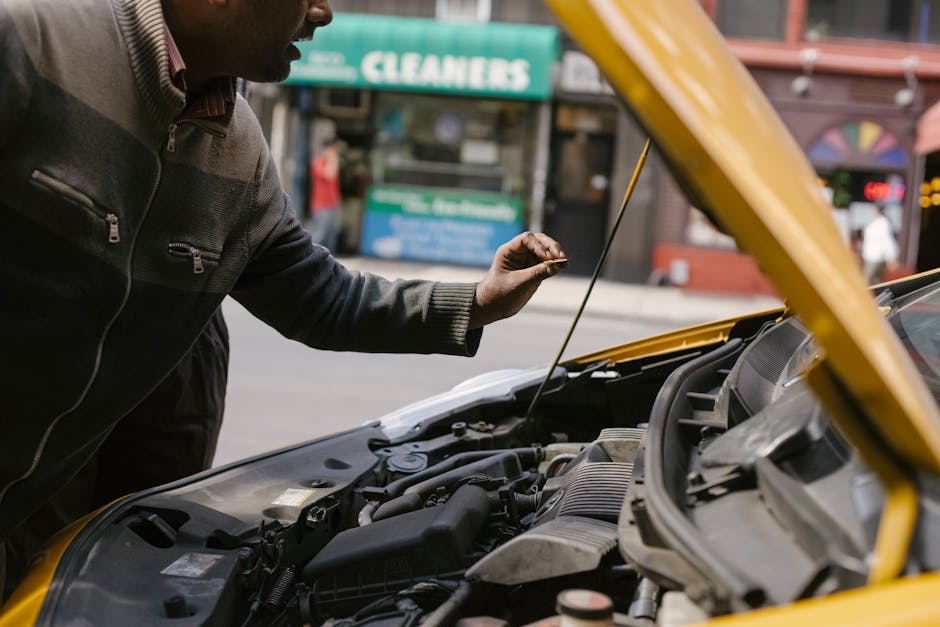The Importance of Regular Engine Checks in Classic Car Upkeep

Regular engine checks are crucial for maintaining the performance and longevity of classic cars. These vehicles, often prized for their historical significance and unique design, require meticulous care to keep them running smoothly. Neglecting regular maintenance can lead to significant mechanical issues that may be costly and difficult to repair, especially given the scarcity of parts for older models.
The Basics of Engine Checks
Engine checks for classic cars encompass a variety of tasks aimed at ensuring all components are in good working condition. Routine inspections typically involve checking fluid levels, examining belts and hoses for wear, and assessing the condition of spark plugs. These basic steps can prevent minor issues from escalating into major problems.
- Oil and Fluid Levels: Regularly check and change the oil to keep the engine lubricated and running smoothly.
- Belts and Hoses: Inspect for cracks or wear that could lead to breakdowns.
- Spark Plugs: Ensure they are clean and functioning properly to avoid misfires.
Consistent attention to these details helps maintain the car’s performance and prevents unexpected breakdowns on the road. Classic car enthusiasts often emphasize the importance of a well-maintained engine, as it significantly impacts the vehicle's overall value.
Advanced Maintenance Techniques
In addition to basic engine checks, classic car upkeep involves more advanced maintenance techniques. These include compression tests, timing adjustments, and carburetor tuning. Each of these tasks requires a deep understanding of the vehicle’s mechanics and often specialized tools.
- Compression Tests: Assessing the engine's compression helps identify issues with valves, pistons, or cylinders.
- Timing Adjustments: Proper timing ensures efficient engine performance and fuel consumption.
- Carburetor Tuning: Essential for optimal air-fuel mixture, impacting overall engine efficiency.
For many classic car owners, performing these tasks themselves is part of the enjoyment of owning such a vehicle. However, those less mechanically inclined may prefer to seek professional help. According to Hemmings Motor News regular professional maintenance is recommended to ensure longevity and reliability.
The Role of Technology in Classic Car Maintenance
Modern technology has significantly impacted how classic cars are maintained. Advanced diagnostic tools now allow for more precise assessments of an engine's condition. These tools can identify issues that might not be visible during a standard inspection.
A key development in this area is the use of portable diagnostic scanners that connect to an engine’s electronic control unit (ECU). These devices can read error codes and provide real-time data on various engine parameters, such as fuel pressure and ignition timing. This information enables owners to make informed decisions about necessary repairs and adjustments.
| Diagnostic Tool | Function |
|---|---|
| OBD-II Scanner | Reads error codes from the ECU, helping diagnose issues quickly. |
| Compression Tester | Measures cylinder compression to identify internal engine problems. |
| Tachometer | Monitors RPMs to ensure accurate timing adjustments. |
The integration of technology into classic car maintenance not only enhances precision but also allows owners to track their vehicle's health over time. This proactive approach can prevent expensive repairs down the line and ensure that the car remains in prime condition.
The Financial Benefits of Regular Engine Checks
While regular engine checks might seem like an added expense, they can save classic car owners significant amounts of money in the long run. Early detection of potential problems allows for more affordable repairs compared to addressing major failures after they occur.
A well-maintained engine also means better fuel efficiency and reduced wear on other components of the car. For example, keeping the spark plugs clean and functional can improve combustion efficiency, leading to better mileage. Similarly, ensuring that belts and hoses are in good condition prevents more severe damage to the engine's cooling system or other vital parts.
The cost savings associated with regular maintenance extend beyond just repairs. A classic car in excellent running condition holds its value better than one with frequent mechanical issues. This is particularly important for collectors who view their vehicles as investments. According to Hagerty Insurance, vehicles with thorough maintenance records often fetch higher prices at auctions or private sales.
Maintaining a classic car requires dedication and attention to detail, especially when it comes to regular engine checks. By adhering to routine inspections and leveraging modern diagnostic tools, owners can ensure their cherished vehicles remain reliable and valuable assets. Regular maintenance not only prevents costly repairs but also preserves the historical integrity and performance of these timeless machines.
Ultimately, investing time in regular engine checks is a wise decision for any classic car owner. It guarantees a smoother driving experience, enhances the vehicle's longevity, and maintains its market value. As these vehicles age gracefully, continued care will ensure they remain functional pieces of automotive history for future generations to enjoy.